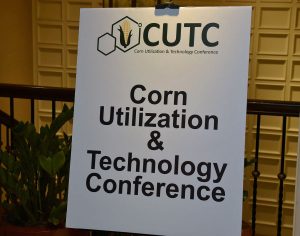 Two years ago, Growth Energy CEO Emily Skor was brand new to the job and the Fuel Ethanol Workshop was her first public introduction to the ethanol industry. Today, Skor keynoted the industry event again as an ethanol professional who has been seasoned by fighting for the fuel during some very difficult battles.
Two years ago, Growth Energy CEO Emily Skor was brand new to the job and the Fuel Ethanol Workshop was her first public introduction to the ethanol industry. Today, Skor keynoted the industry event again as an ethanol professional who has been seasoned by fighting for the fuel during some very difficult battles.
“The battles ahead are tougher, and higher-stakes, and we need to remind ourselves that we have what it takes to win,” said Skor. “And we’ll keep on fighting, from the EPA to the halls of Congress, where other oil-backed lawmakers have already announced their latest plans for so-called reforms of the RFS.”
Skor highlighted the victories over the past year and the challenges the industry continues to face. Listen here:
Growth Energy CEO Emily Skor #FEW18 Keynote











